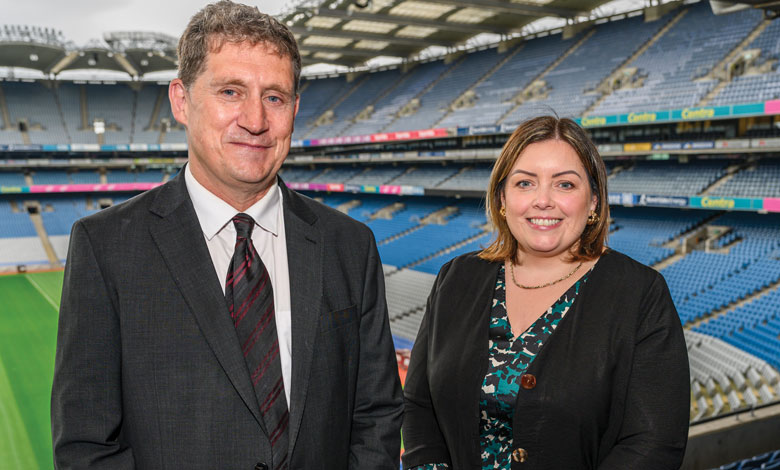Ministers outline visions for Ireland’s energy future

Energy ministers – north and south – have outlined their visions for achieving a sustainable energy system with a prominent all-island dimension.
 Speaking at the Energy Ireland Conference in late May 2024, Minister Ryan warns that climate indicators point to “a truly frightening time in the world”, adding that global temperatures have risen in a manner “higher than predicted”.
Speaking at the Energy Ireland Conference in late May 2024, Minister Ryan warns that climate indicators point to “a truly frightening time in the world”, adding that global temperatures have risen in a manner “higher than predicted”.
“The tipping points about which we have been concerned are looming even larger than they ever did before,” he states.
As part of its response, Ireland must pursue a renewable energy system and transform its power supply.
“It is cheaper, it is ubiquitous, and all the technological innovation and advancement is going in the direction towards an electrified, balancing, and renewable system,” he explains.
Ryan announced the Small-Scale Renewable Electricity Support Scheme at the Energy Ireland Conference, which he believes will expand renewable generation options for small businesses and local communities, as well as present an opportunity for decarbonisation in the agricultural sector.
“We want to broaden the energy revolution so that it feeds into every village, parish, and community right across this country so there is ownership of the change which is coming,” he states.
Energy efficiency in Ireland
Ryan believes that there are two branches which enable a sustainable energy system: energy efficiency and renewable generation, both of which must be underpinned by public buy-in.
Emphasising the importance of the Government’s retrofit programme in enhancing energy efficiency of buildings, Ryan characterises the SEAI retrofit scheme, supported by government, as “probably the best in class across the EU”.
He also explains that the carbon tax has proved “hugely beneficial” because one-third of the revenue generated being earmarked for social welfare spending. 55 per cent of the revenue generated also goes to retrofitting spending which, Ryan asserts, “gives the industry real confidence that the funding is going to be there and it will continue to expand”.
On wider efficiency measures, Ryan acknowledges that there are key developments which must be enhanced in the Climate Action Plan, including accelerating the introduction of district heating.
“We need to scale district heating up at speed, and more broadly we need to see the much wider introduction of heat pumps both domestically and in commercial buildings, and with industrial heat,” he says.
Ryan states that the Government’s sustainability measures will survive in the long term as they are entrenched by the supernational regulation and are part of a shared endeavour.
Generation
The Minister believes that Ireland must capitalise on its competitive advantage in the development of renewable power.
He characterises the State’s 2030 targets for renewable energy generation as the ‘seven, eight, nine’ model: 7GW of offshore wind generation – of which 2GW is earmarked for the production of green hydrogen; 8GW of solar; and 9GW of onshore wind.
The rollout of solar energy, which Ryan highlights was “seen as impossible” by key industry figures when initially outlined, is now a “revolution” which “is now really taking hold in our energy system”, according to the Minister.
Ryan states that the key to acceleration of the rollout of solar and onshore wind is with the passage of the Planning and Development Bill 2023.
Acknowledging critiques expressed by industry leaders about the complexity of the Bill, he nonetheless states that it is needed to “realise our vision of a planning system which does not get projects stuck in expensive, litigious processes”.
On offshore wind, Ryan says that although Ireland is seen as being “late to the party” when compared to the expansive construction across Europe, there is “broad recognition in Europe that the Irish approach is now probably one of the best, most consistent, most predictable approaches in line with achieving offshore wind generation targets”.
Bringing these initiatives to local communities, Ryan believes, is dependent on an all-island grid: “It will not work if we have two energy systems on this island. It has to be all-island and that is what we are committed to in the remaining nine months of this government’s term, and we will keep going after that,” he concludes.






